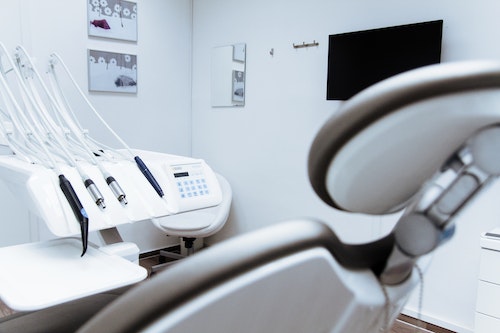Accidents can happen at any time, and dental trauma is one of the common consequences of such unexpected incidents. Dental injuries can range from chipped or cracked teeth to more severe cases like knocked-out teeth or dislodged dental restorations. When faced with dental trauma, knowing how to handle the situation promptly and appropriately can make a significant difference in preserving your smile and ensuring the best possible outcome for your oral health.
Stay Calm And Assess The Situation: The first step in handling dental trauma is to remain calm and composed. Panicking can make the situation worse and hinder your ability to make rational decisions. Take a moment to assess the injury and determine the severity of the damage. If there is excessive bleeding or severe pain, seek immediate medical attention or contact your dentist right away.
Preserve a Knocked-Out Tooth: If a tooth is completely knocked out, time is of the essence. Handle the tooth carefully by holding it by the crown (the part visible in the mouth) and avoid touching the root. If the tooth is dirty, gently rinse it with milk or saline solution, if available. Do not scrub the tooth or use soap, water, or any cleaning agents. Try to reinsert the tooth into its socket, if possible, and hold it in place by gently biting down on a clean cloth. If reinsertion is not possible, place the tooth in a container with milk, saliva, or a tooth preservation product recommended by your dentist. Get to the dentist or an emergency dental clinic within the next hour, as the chances of saving the tooth decrease significantly after that time frame.
Treat Chipped Or Fractured Teeth: For chipped or fractured teeth, rinse your mouth with warm water to clean the area. If there is swelling, apply a cold compress on the outside of your cheek to reduce it. Save any chipped or broken fragments of the tooth, if possible. Contact your dentist immediately to schedule an appointment for evaluation and treatment. Depending on the severity of the fracture, the dentist may recommend dental bonding, crowns, or veneers to restore the tooth’s appearance and function.
Manage Dislodged Dental Restorations: If a dental crown, filling, or other dental restoration becomes loose or falls out, try to keep the restoration and visit your dentist as soon as possible. Do not attempt to fix the restoration yourself with glue or other adhesives, as this can cause further damage and may lead to complications.
Preventive Measures For Active Individuals: For individuals who engage in sports or physical activities, wearing a mouthguard can significantly reduce the risk of dental trauma. Custom-fitted mouthguards provided by dentists offer the best protection, as they are designed to fit comfortably and securely over the teeth, absorbing impact forces and minimizing the risk of injury.
Regular Dental Check-ups: Prevention is always better than cure. Regular dental check-ups are essential for maintaining good oral health and catching any potential issues early on. Your dentist can identify weak or compromised teeth, provide preventive treatments, and offer advice on protecting your smile.
In conclusion, dental trauma can be distressing, but handling it promptly and appropriately can make a significant difference in preserving your smile and oral health. Staying calm, seeking immediate dental attention for knocked-out teeth, managing chipped or fractured teeth properly, and taking preventive measures for active individuals are essential steps to address dental injuries effectively. Regular dental check-ups play a crucial role in maintaining overall oral health and detecting potential problems before they escalate. By being proactive and informed, you can protect your smile and enjoy a healthy and confident grin for years to come.
